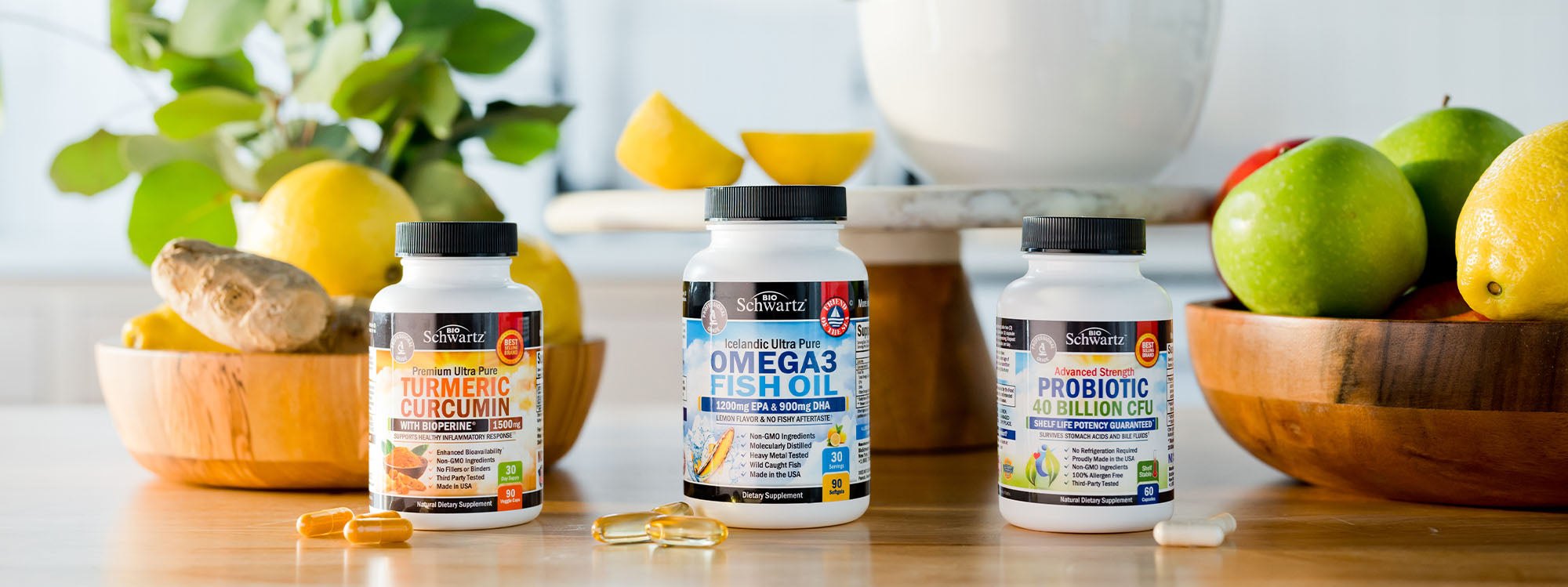Resveratrol belongs to a class of plant micronutrients known as polyphenols. Polyphenols are organic chemicals synthesized by plants to fight environmental stresses. These compounds are found in a variety of plants and are believed to have several health benefits. Resveratrol is a natural polyphenol found in the skin of red grapes, Japanese knotweed, blueberries, peanuts, and some other berries. It is believed to be an effective antioxidant produced by certain plants to protect against UV damage. Antioxidants function by neutralizing reactive oxygen species, which are known to be the cause of several health disorders.
The French Paradox
It has been hypothesized that Resveratrol is responsible for the low rates of cardiovascular ailments in the French population as compared to other populations, even though they generally consume a high-fat diet, smoke more, and consume higher amounts of caffeine. All these factors are well-known contributors to high blood pressure and high cholesterol levels which could cause health complications such as a stroke and heart attack. In theory, the reason why the French population still has a lower incidence of heart diseases is that they consume moderate amounts of red wine, which contains a significant amount of resveratrol.
Resveratrol is available in the form of dietary supplements from grape seed extracts, red wine extracts, and Japanese knotweed extracts. Most of the commercially available supplements are derived from the Japanese knotweed since this plant has the highest concentrations of resveratrol found in nature.
Health Benefits of Resveratrol
Could Help Eliminate Free Radicals
Like other antioxidants, resveratrol helps the body detoxify itself from toxins that oxidize other tissues and cells. The normal metabolic processes taking place inside our body give rise to highly oxidizing and reactive molecules known as free radicals. They are produced in even greater numbers during stress and irritation. Free radicals can cause mutations in our DNA and damage the vital organelles of the cell such as mitochondria through oxidation.
Antioxidants protect our bodies against these harmful oxygen species by capturing and neutralizing them, thus eliminating them from the cell’s environment. Antioxidants function by interacting with the free radicals so that they are oxidized by the reactive oxygen species, however, they can regenerate themselves. This protects other vital molecules, cells, and tissues from oxidative damage. This is the reason why antioxidants are mostly reducing agents, such as polyphenols and thiols.
Researchers believe that resveratrol has dual antioxidant activity; it acts as a direct antioxidant as well as a compound that can increase other antioxidant enzymes, pathways, and genes.
Cellular and animal studies suggest that resveratrol could be linked to an increase in the concentration of the following antioxidant enzymes:
- NRF2 and SOD, which are the major components of our body’s antioxidant defense
- Glutathione
- Heme-oxygenase 1, which breaks down the “heme” group from the hemoglobin to iron and antioxidants
- Catalase, which protects against oxidative damage
- SIRT enzymes and sirtuins which deregulate aging-related genes and protect the protein chains
In addition to this, some studies also suggest that resveratrol could reduce the concentration of reactive oxygen species and pro-inflammatory compounds such as NADPH, iNOS, and Myeloperoxidase.
Could Promote Cardiovascular Health
Some studies have examined the role of resveratrol in managing the symptoms of various cardiovascular disorders. This polyphenolic compound exerts protective effects against blood vessel damage. Research has also shown that it can help regulate the levels of cholesterol in the body and lower the risk of blood clots.
Moreover, resveratrol is believed to help regulate known cholesterol levels by reducing the effect of an enzyme that regulates the production of cholesterol. Due to its antioxidant nature, it may also lower the oxidation of LDL or “bad” cholesterol, which can lead to the build-up of plaque in the walls of arteries.
A meta-analysis of 19 studies concluded that consuming 50-300 ml of red wine daily could reduce the risk of heart diseases. However, based on this study, the alcohol content of red wine may reduce the beneficial effects of resveratrol as well as other polyphenols. This particularly holds for individuals who already suffer from high blood pressure or are at risk. In healthy individuals, however, moderate consumption of red wine can lead to improved cardiovascular health.
According to studies conducted on animals and human cell lines, resveratrol can also reduce the build-up of plaque in arteries which can lead to a condition called atherosclerosis. It can also reduce the clumping of platelets, reduce the level of circulating blood lipids, and lower the concentration of pro-inflammatory compounds that increase the risk of atherosclerosis.
Could Help Regulate Blood Pressure
Owing to its antioxidant nature, resveratrol could be a promising candidate for regulating blood pressure. A review of studies in 2015 suggested that high doses of resveratrol could help reduce the pressure exerted on the walls of arteries when the heart beats. That type of pressure is known as systolic blood pressure, and it typically increases as we age and our arteries become stiff. If this pressure is abnormally high, it can be a major risk factor for cardiovascular diseases. Resveratrol might help regulate blood pressure by enabling our body to produce more nitric oxide, which causes the blood vessels to dilate.
A review was published in Clinical Nutrition in 2015 in which scientists reviewed previously published literature on the effect of resveratrol on blood pressure. They hypothesized that lower doses of resveratrol didn't have a significant effect on blood pressure. However higher doses of this compound (around 150 mg per day) could be linked to lower systolic blood pressures. However, the authors of this study said that more research is needed before specific claims can be made about the exact dose of resveratrol needed to achieve these effects.
Could Be Beneficial for Skin Health
Resveratrol has been linked to improved health of the skin as well, due to its ability to combat symptoms of aging. The compound can easily penetrate the skin barrier, making it possible for it to slow down the aging process of our skin cells.
Apart from antioxidant properties, resveratrol is also believed to be effective in supporting a healthy inflammatory response. In addition to this, resveratrol could also have a role in enhancing the production of collagen and protecting the skin from damage caused by overexposure to UV radiation and pollutants present in the environment. Resveratrol could also help repair the skin, improve its overall appearance and health.
Research also suggests that resveratrol could prove to be beneficial in lightening skin color, and preventing premature aging of the skin, and skin pigmentation disorders. Resveratrol with ferulic acid, which is another potent antioxidant, is one of the most popular combinations used in skincare products.




